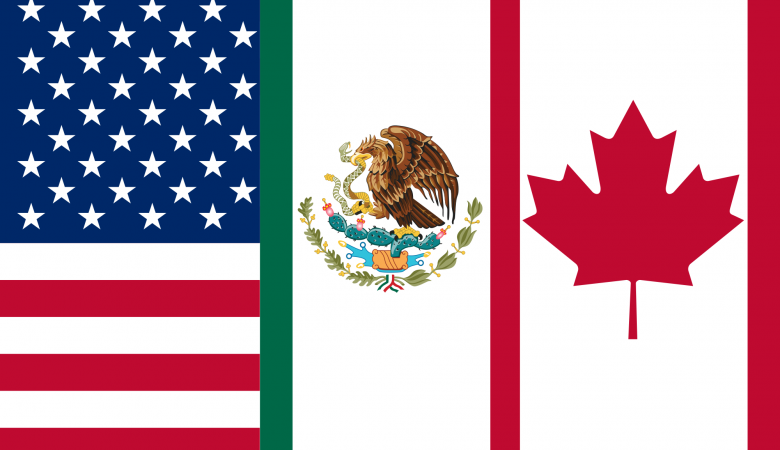
Americans for Tax Reform has joined Property Rights Alliance in a letter to the chief negotiators of the North American Free Trade Agreement to call for stronger IP protections and a commitment to free trade in a reworked agreement. The letter highlights the important role that free trade plays in the development of the countries in the NAFTA bloc. It also details the how IP has transformed NAFTA’s modern economies, along with why these protections must be updated.
The full text of the letter is below:
Americans for Tax Reform and Property Rights Alliance call upon the negotiating teams to reaffirm a commitment to free trade and strengthen the intellectual property provisions in a reworked North American Free Trade Agreement. Since NAFTA was enacted in 1994, the global economy has changed drastically. Capital moves more freely across borders, technology is more advanced, and barriers to trade around the world have declined significantly. A reworked NAFTA agreement must reaffirm a commitment to the principle of free trade, while also having updated IP protections to protect content creators’ rights in the highly digital economy of the 21st century. We have previously called for this in a September 2017 international coalition letter in partnership with Canadian and Mexican advocacy groups.
Withdrawing from NAFTA would have a disastrous effect on the American economy. Studies have shown that if NAFTA was terminated, the U.S. could expect to lose 1.8 million jobs, with U.S. production declining by $120 billion. With a reaffirmed commitment to free trade, the parties can focus on more niche issues, including the protection of intellectual property rights.
The overwhelming majority of trade between the NAFTA partners is in IP-intensive industries. This includes chemicals, software, pharmaceuticals, and creative works such as movies and music. IP-intensive products have been a main driver of growth for the NAFTA bloc. This is why it is imperative that NAFTA provisions are updated to ensure stronger protection of intellectual property rights. One key goal for US negotiators should be ensuring 12 years of data exclusivity for biologics, which require immense capital investments, long-term research commitments, and then must go through stringent regulatory approval processes before reaching consumers in the various markets.
However, IP rights are currently being abused by the United States’ NAFTA partners. Mexico is currently the 2nd largest market for the illicit recording of films. In 2017, 81 American films were illegally recorded in Mexican theaters. This robs creators of the right to disseminate their works how they wish, and of potential revenues from the film being shared.
In Canada, innovative medicines are undervalued and there is longer time before reimbursement for these medicines compared to others. This stifles research & development in the pharmaceutical industry and blocks Canadians’ access to life-saving medicines.
A reworked NAFTA should adapt IP protections to the modern economy and reinforce strong intellectual property rights. Robust intellectual property protections will advance free and competitive markets by removing government from the marketplace, and leaving decisions to be made between buyers and sellers. This will allow innovators and creators to devise business models that best serve consumers, foster competition, and benefit the economy as a whole, without worrying about their works being infringed or illegally distributed.
Including strong IP protections in a reworked NAFTA will be beneficial to all parties. Harmonized IP standards will put all countries on a level playing field, allowing content creators to be certain about the protection of their product when it is traded in a foreign market. This protection will encourage innovation within NAFTA countries and international trade in IP-intensive products.
We call on the negotiators to reaffirm a commitment to free trade, and strengthen IP protections in a reworked NAFTA. Economies that promote free trade and protect the rights of content creators and entrepreneurs perform better economically than those that do not protect rights. Continuing to promote free trade and the protection of intellectual property rights is essential for North American innovation, entrepreneurship, and economic growth.

